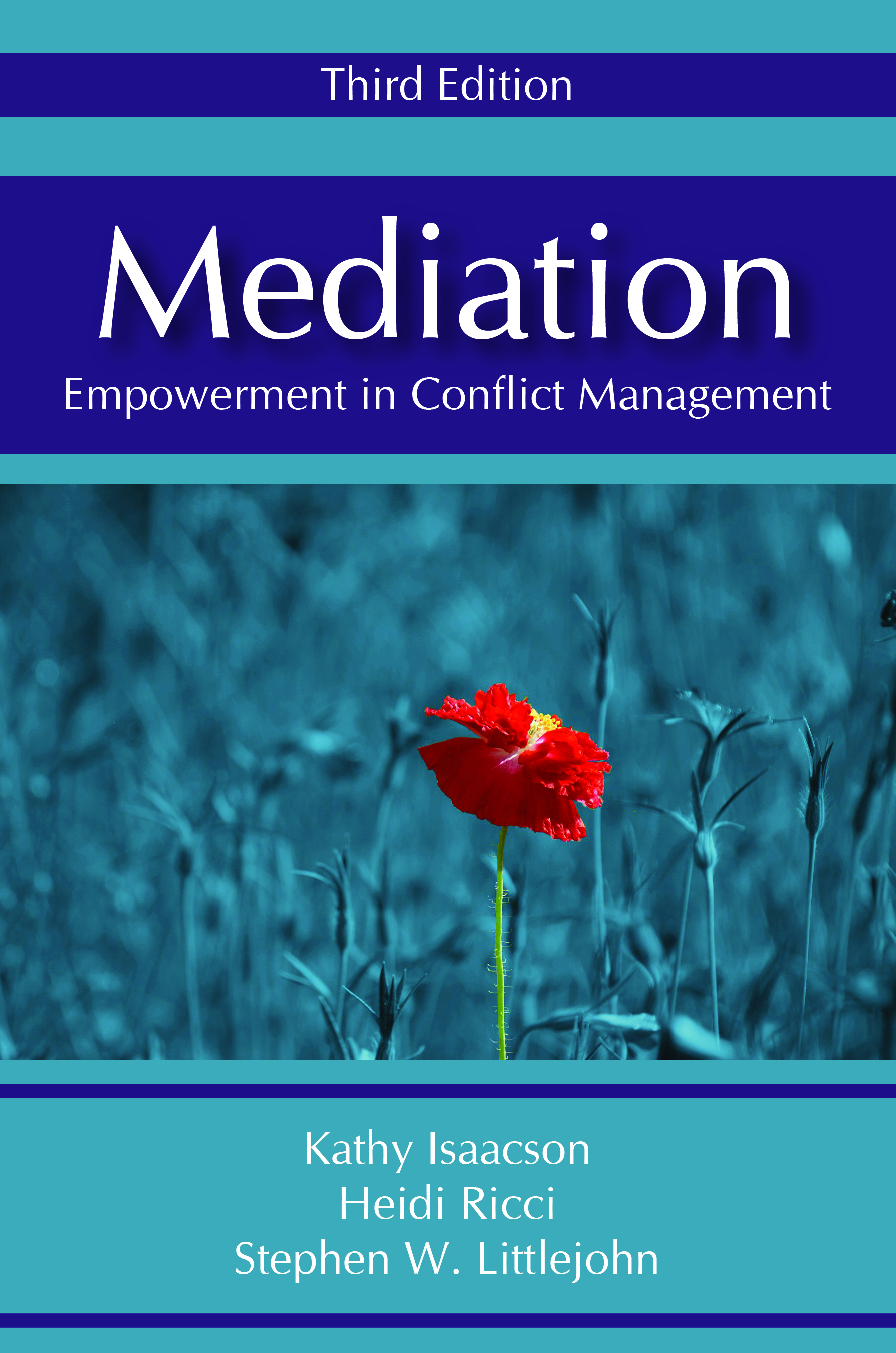“The Third Edition provides a strong foundation for understanding mediation as a more formal process of negotiation.” — Derek Lane, University of Kentucky
“This is an excellent textbook for teaching mediation. It is accessible without being overly pedantic. We’ve used it on our campus for many years over all three editions and will continue to use it. The latest edition has significant improvements. I appreciate the reasonable price, too.” — Ronald Ringer, St. Cloud State University
“The book is concise, practical, inexpensive, conversational, and a great supplemental reading for a conflict course.” —Chris Kennedy, Western Wyoming Community College

199 pages, $35.95 list
1-4786-3993-8
978-1-4786-3993-0
© 2020
paperback
eBook availability
Similar Titles
Mediation
Empowerment in Conflict Management
Third Edition
Mediation is a strong force for change that continues to grow as an alternative process for conflict management. The Third Edition of Mediation: Empowerment in Conflict Management is practical and concise, making it appropriate for college classes and training programs. The book has a clear set of theoretical principles, ideal for anyone interested in learning mediation skills.
Mediation is explored as a dispute resolution option that allows conflict to be an opportunity. Special emphasis is given to the use of effective communication in mediation. New to the Third Edition are circular causation and modeling behaviors, dialogic communication, managing difficult behavior, mediating large groups, online dispute resolution, and pre-mediation. The book is perfect for those wanting to become certified mediators, but it is valuable for all readers—providing life skills to improve approaches to conflict in professional and personal relationships.
Mediation is explored as a dispute resolution option that allows conflict to be an opportunity. Special emphasis is given to the use of effective communication in mediation. New to the Third Edition are circular causation and modeling behaviors, dialogic communication, managing difficult behavior, mediating large groups, online dispute resolution, and pre-mediation. The book is perfect for those wanting to become certified mediators, but it is valuable for all readers—providing life skills to improve approaches to conflict in professional and personal relationships.
Reactions
Introduction
1. Conflict Management
Understanding Conflict / Defining Conflict / Managing Conflict / Mediation as a Transformative Process / Resolving Disputes
2. Mediation: An Overview
Role of the Mediator / Benefits / Types of Mediation / When Mediation Is Effective
3. A Mediation System
Characteristics of Constructive Mediation
4. Basic Skills
Introduction / Storytelling Stage / Problem-Solving Stage / Tools for Deliberation / Resolution Stage
5. The Communication Perspective
The Communication Perspective / Thinking about Goals / Co-Mediation
6. Special Concerns
Appropriateness / Mediating Large Groups / Managing Difficult Behavior / Caucus / Ethics / Confidentiality
7. Completing the Mediator Toolkit
Cultural Considerations / Conflict in Ordinary Life: The LARC Model
Appendix
Agreement to Mediate / Sample Mediation Introduction / Questions and Statements That Can Facilitate Movement / Statements That Can Stop Movement / Managing Difficult Behavior / Role Playing / Cases for Role Playing / Guidelines for Mediation Coaching / Co-Mediator Debriefing Form / Participant Survey / Mediation Observation Form
1. Conflict Management
Understanding Conflict / Defining Conflict / Managing Conflict / Mediation as a Transformative Process / Resolving Disputes
2. Mediation: An Overview
Role of the Mediator / Benefits / Types of Mediation / When Mediation Is Effective
3. A Mediation System
Characteristics of Constructive Mediation
4. Basic Skills
Introduction / Storytelling Stage / Problem-Solving Stage / Tools for Deliberation / Resolution Stage
5. The Communication Perspective
The Communication Perspective / Thinking about Goals / Co-Mediation
6. Special Concerns
Appropriateness / Mediating Large Groups / Managing Difficult Behavior / Caucus / Ethics / Confidentiality
7. Completing the Mediator Toolkit
Cultural Considerations / Conflict in Ordinary Life: The LARC Model
Appendix
Agreement to Mediate / Sample Mediation Introduction / Questions and Statements That Can Facilitate Movement / Statements That Can Stop Movement / Managing Difficult Behavior / Role Playing / Cases for Role Playing / Guidelines for Mediation Coaching / Co-Mediator Debriefing Form / Participant Survey / Mediation Observation Form